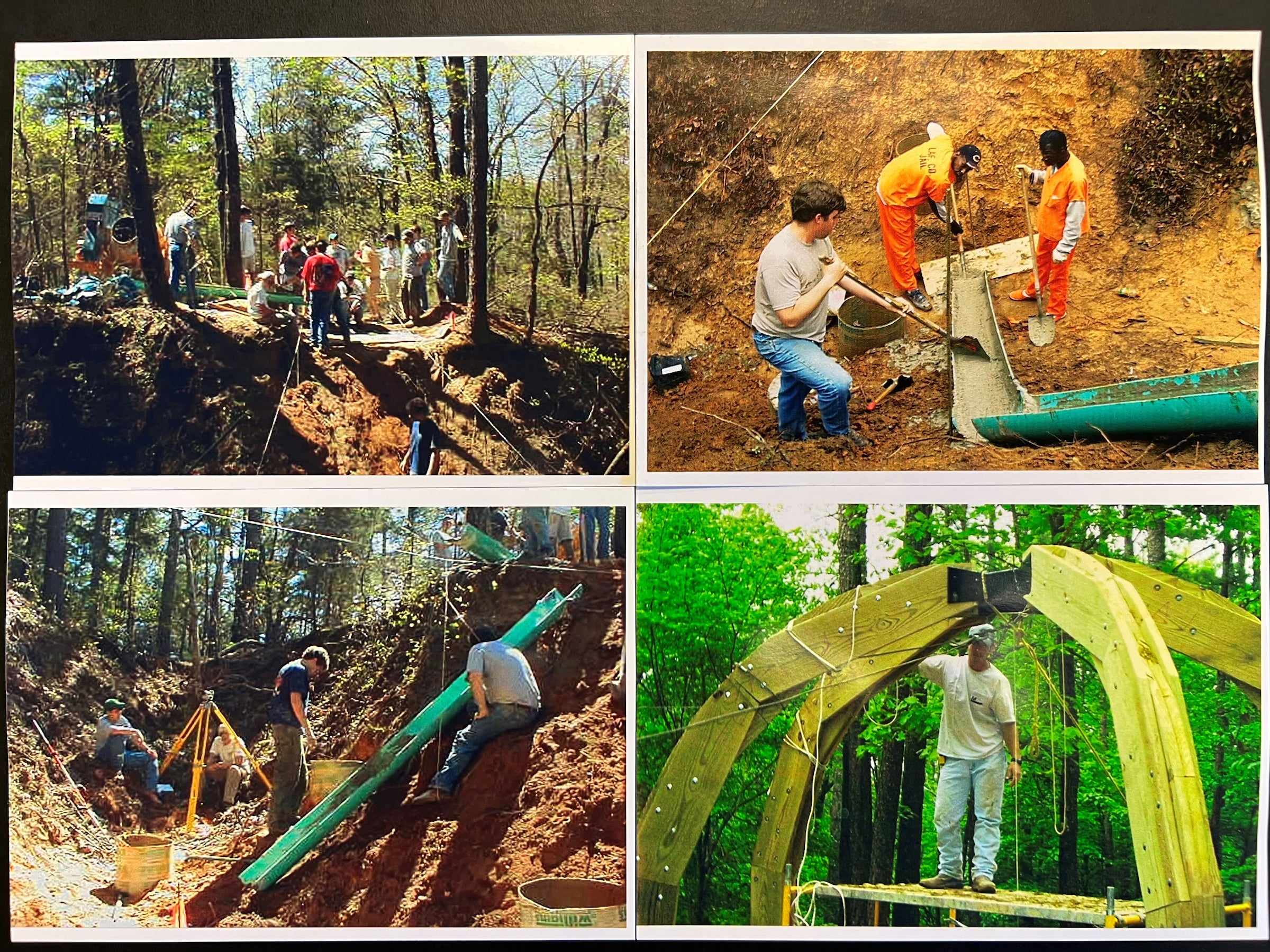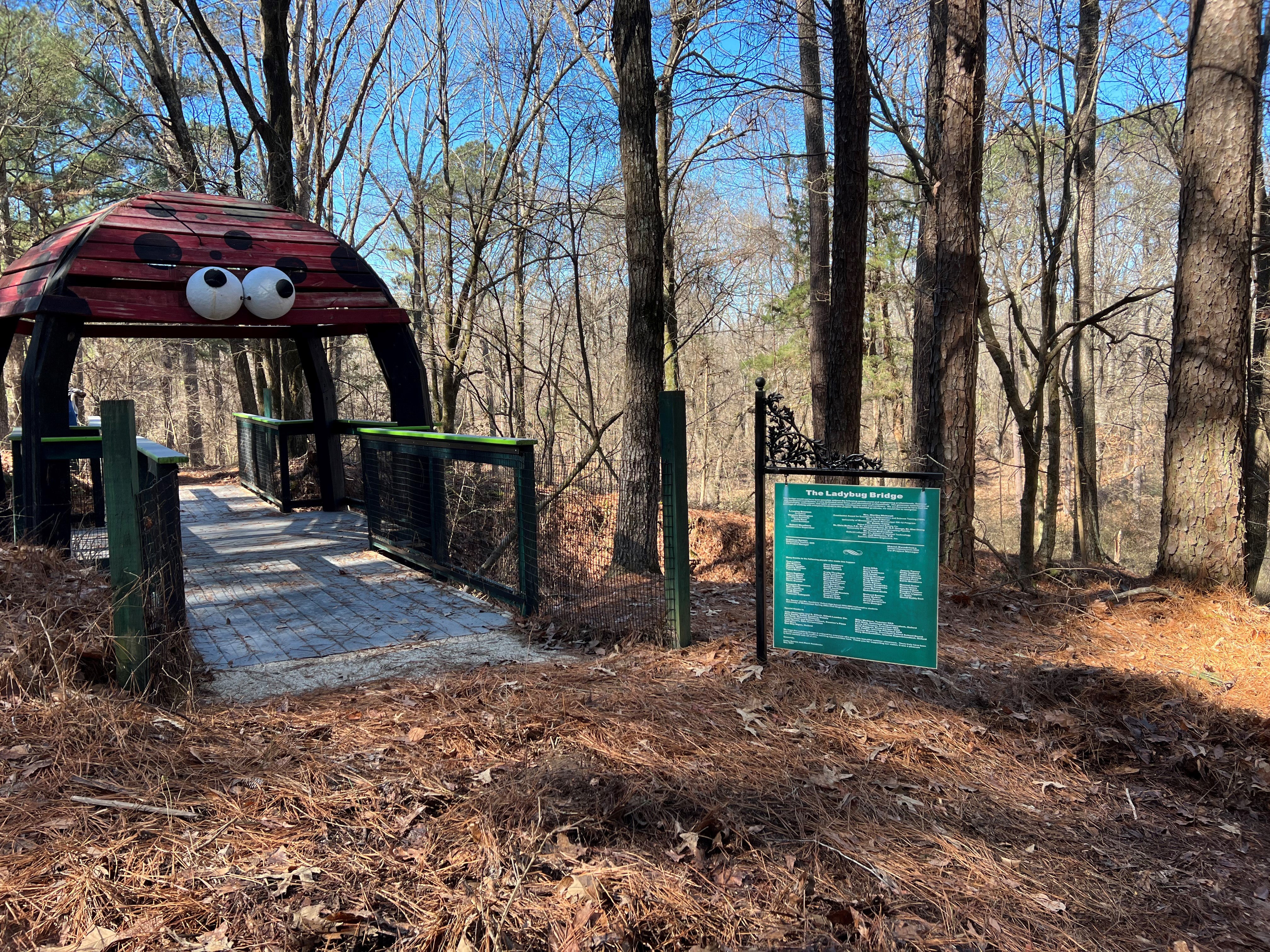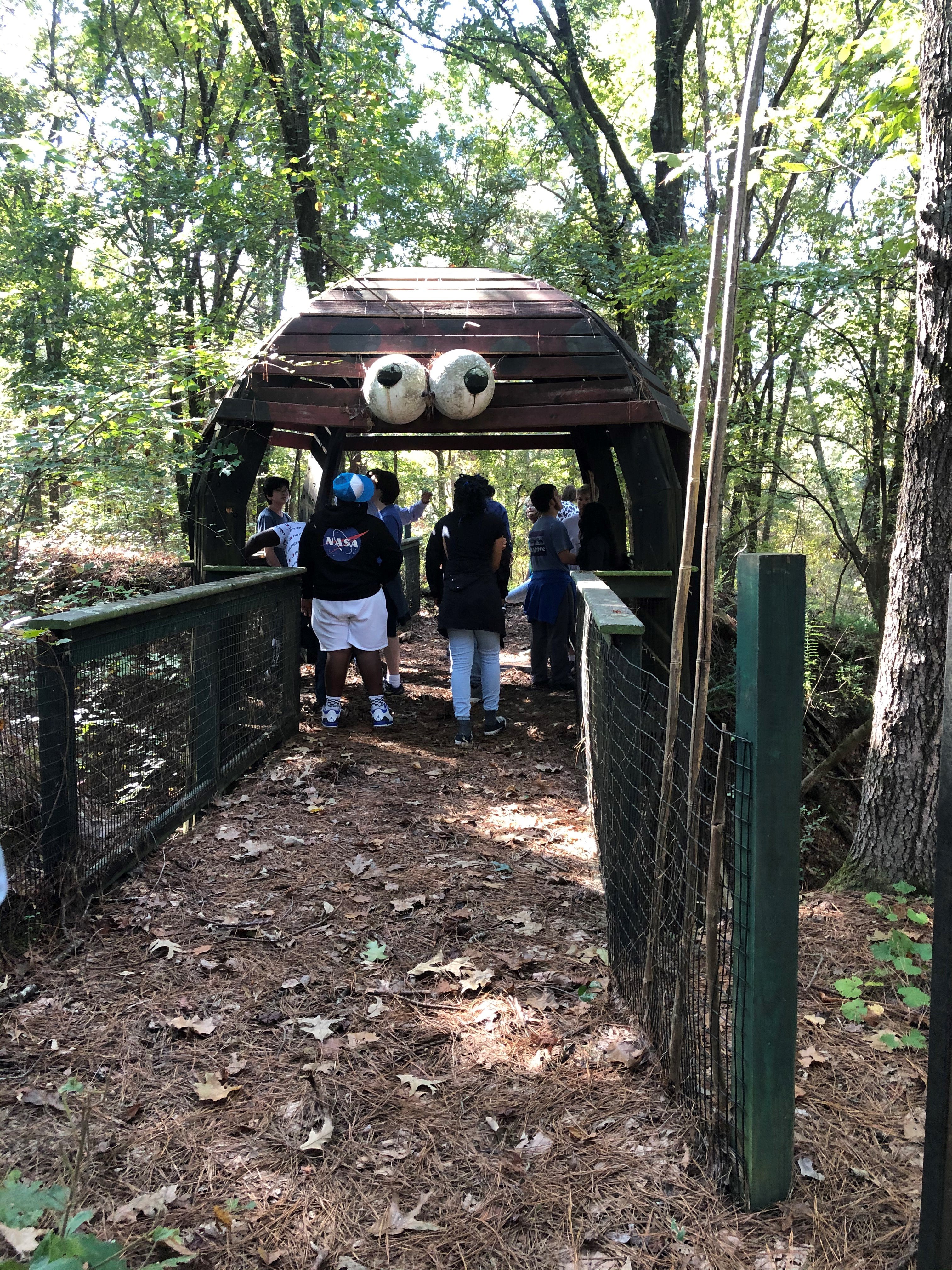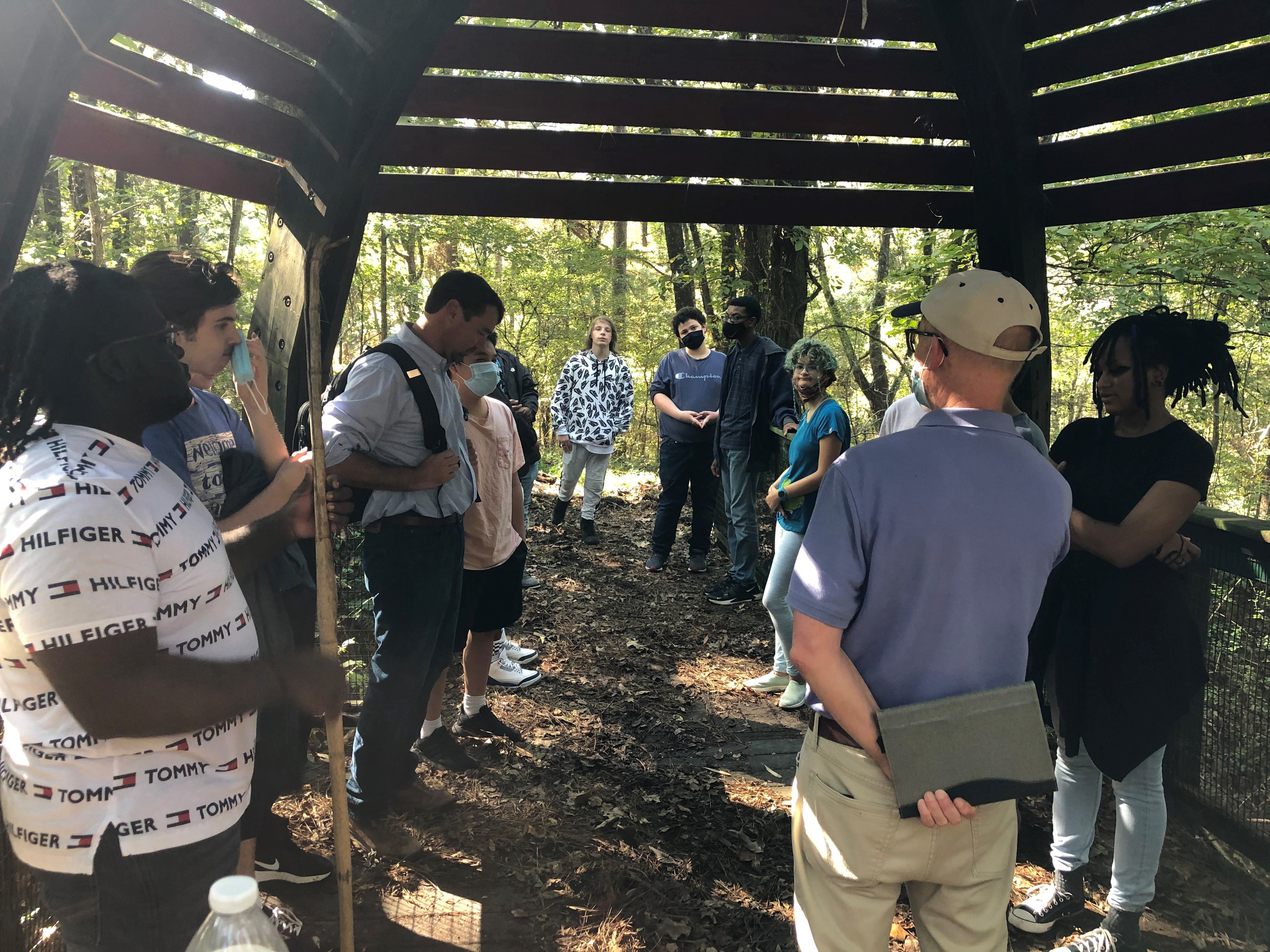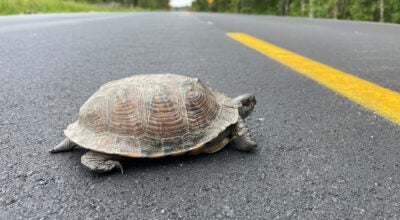Civil engineering team restores Oxford’s Ladybug Bridge
Published 12:30 pm Thursday, April 21, 2022
Almost 20 years ago, an Oxford High School student participated in an Introduction to Engineering class and envisioned the creation of a ladybug-covered bridge.
After building a model of the bridge, the student shared it with University of Mississippi civil engineering faculty, students and local professionals, who helped the concept become a reality at the Oxford School District office near the intersection of highways 7 and 30 in spring 2003.
Over time, the Ladybug Bridge (as it is commonly called) has become weather-worn and in need of repair. Nearly two decades later, the bridge and its trail are undergoing a moderate makeover, thanks to the efforts of the UM chapter of the American Society of Civil Engineers and local volunteers.
Preliminary Planning
Planning for the restoration began last November when Oxford School District officials decided they wanted to start using the area for more outdoor classes and recreation. They asked theSchool of Engineering for assistance, and the ASCE chapter became involved with the project.
“The timing of the request worked out well since the ASCE needed a good community service project to get involved in,” said Troy Hill, chapter president. “It will be used as our submittal in the ASCE competition at Auburn (University) this spring.
“In a broader and more beneficial aspect, it helps us grow in our knowledge of practical engineering.”
People and Preparations
The ASCE decided to approach the project as an engineering firm would, Hill said.
“We started with initial planning, inspecting and surveying,” he said.
Lynne Trusty, UM operations coordinator II in civil engineering; Marni Kendricks, senior assistant engineering dean; and Grace Rushing, instructor in civil engineering and ASCE faculty adviser, have helped in coordinating the startup on the restoration project.
Kendricks taught the Introduction to Engineering class at Oxford High School in which the Ladybug Bridge was initiated.
“An outdoor classroom idea was conceived by a fourth-grade teacher named Mike Wallace who helped build the nature trail, outdoor seating areas and a pavilion prior to the bridge,” Kendricks said. “The bridge was needed to connect two parts of the outdoor area separated by a steep ravine.”
Kendricks recalled how “the perfect storm” resulted in the bridge’s construction.
“My math teacher colleague, Kathy Barnes, had always favored hands-on teaching and wanted to do more for our students than just classroom education,” she said. “Our chemistry teacher colleague, Martha Whitwell, had grant money to spend from a Presidential Award for Excellence in Mathematics and Science Teaching.
“Local young architects wanted to contribute to community service hours for professional development. And the most amazing, talented, willing and able volunteers showed up from all over the community.”
The Ole Miss civil engineering department had been very supportive of the high school class and to Kendricks as a teacher/alumna. Together, they decided to let the students in the high school class come up with creative designs using balsa wood models as part of an internal competition.
“The Ladybug Bridge design absolutely captured the judges,” Kendricks said. “So, one year and a lot of work later, it was standing there spanning the ravine.”
Sight for Sore Eyes
A field trip with high school students in October 2021 revealed the structure needed repairs.
“We observed a board loose on the dome that could be fixed, along with checking all the bolts and connections,” Kendricks said. “Other than that, cleaning and restaining would be the only thing needed. How fun to bring her back to life.”
Kendricks also noted that the nature trail leading to the bridge could be easily restored and marked.
“The trees can be identified again with signage,” she said. “We could also work on improving the outdoor classroom sitting area west of the bridge.”
After that, Hill corresponded with Charles Sabatier, physics and engineering instructor at Oxford High School, and Duncan Gray, assistant director for career readiness in the Oxford School District, to provide preliminary planning and estimating.
“The costs of the restoration project will be paid for by the Oxford School District,” Hill said. “ASCE provided recommended phases, the first of which could range from $600 to $1,500, depending on what the school district decides to complete in this phase.”
Both school district officials responded enthusiastically to the invitation to become involved in the refurbishment.
“We love partnering with UM on this project,” Sabatier said. “I am seeking funding and selected some dates for us to consider.”
First Things First
ASCE members Eli Venarske and Payton Keith assisted with inspecting and surveying the site.
Hill, ASCE students and local volunteers started work Feb. 5, which largely involved clearing the trail. The first community cleanup effort consisted of OHS students and faculty, ASCE representatives, administrators and even children.
“The trail around the bridge was mostly lost to fallen trees and expanded bamboo growth,” Hill said. “The bridge has held up well structurally, other than a few boards on the canopy. For the most part, it just needs to be repainted.
“For that reason, we have broken it up into different days. Many of the other ASCE student members will be assisting with the work in the coming weeks.”
A Continued Commitment
The work has drawn notice. The Ole Miss ASCE chapter was recognized with an award for community service this semester as a result of their work on the bridge project through the American Society of Civil Engineers.
Pending weather and other conditions, the Ladybug Bridge and trail should be completely beautified and restored before the spring semester ends. Even so, the ACSE’s commitment to the bridge’s upkeep will extend over time, Hill said.
“From now on, we will go through the construction and continually monitor the public health and safety of it, as all civil engineers should strive to do,” he said. “For the alumni, it provides new life to a project they left behind – something that many young minds in the Oxford School District are able to use for years to come.”


